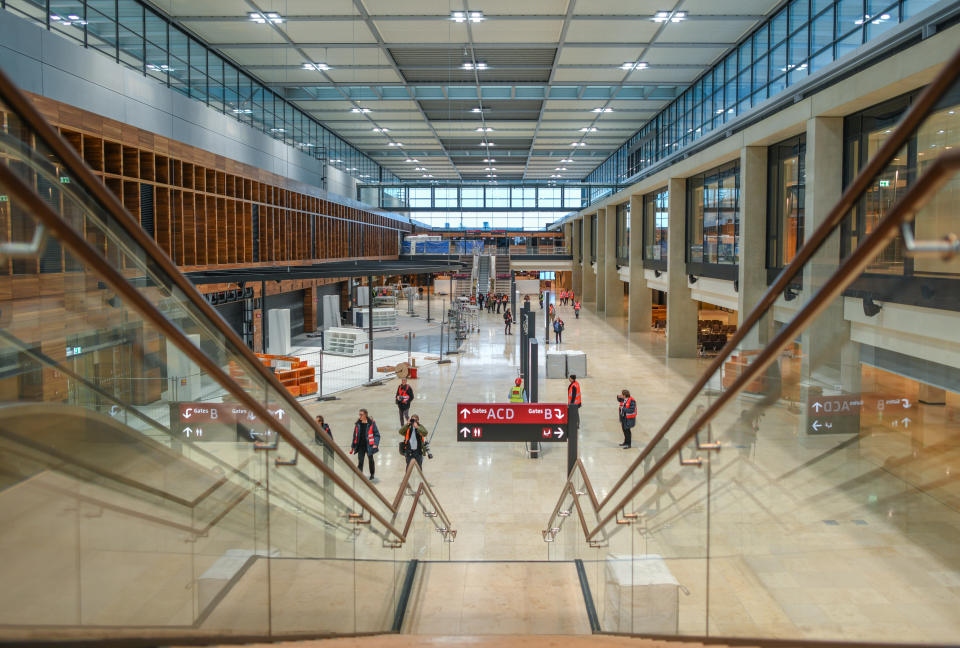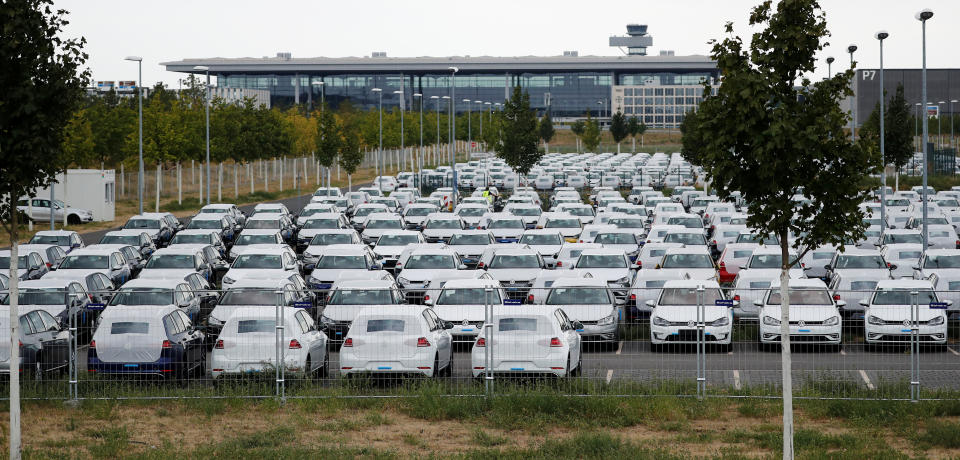Nine years late and billions over budget, Berlin’s new airport will open in 2020

It is years late and billions over its original budget, but Berlin’s new international airport finally has an opening date. The problem-plagued airport will receive its first passengers on 31 October 2020, according to its chief executive Engelbert Lütke-Daldrup.
Berlin Brandenburg airport, with the code BER, was meant to open in 2011, but has been mired in setbacks, from faulty sprinkler systems to a corruption scandal. In the meantime, the German capital’s air-passenger traffic has grown to more than 35 million a year, meaning that in the intervening years, the new airport already become too small to handle the increased volume, and required an extra terminal.
As the airport blew past one opening date after another since its first target of 2011, Berliners went from feeling exasperation to ridiculing the mess. The initial budget of €2.5bn (£2.1bn, $2.8bn) surged to more than €7bn.
Building work began in 2006, but the planning company went bust in 2010. In 2012, just before chancellor Angela Merkel was due to christen the new airport, inspectors found its fire protection systems were not working. That was just one of many issues, including too-short escalators, thousands of incorrectly numbered doors, a roof was twice the authorised weight, miles of cabling not installed properly ... the list goes on.
In 2016, a former manager at the airport was convicted for accepting a bribe from former building contractor Imtech, itself bankrupt since 2015, in exchange for approving more than €60m worth of invoices.

At least the airport’s parking lots did not sit empty: German car company Volkswagen rented the car parks last year for a while to store a backlog of thousands of cars awaiting new emissions certifications.
Once BER is open, the plan is to shut down Tegel airport, which was built in just 90 days in 1948 to support the Allied airlift of supplies into West Berlin during the Soviet blockade. The main terminal was built in the 1970s to handle 6 million annual passengers; today the little airport handles some 20 million.
Brandenburg state premier Dietmar Woidke said he was optimistic that "things will work out this time" for the new airport.
It cannot come soon enough for companies in and around the capital: a recent survey from the Chamber of Commerce and Industry of Berlin found that three quarters of 150 companies they polled complained that it is nigh-on impossible to fly from Berlin to intercontinental destinations without having to change in another city. Long-haul travellers often need to make a stopover to change planes in Frankfurt, Munich, or a nearby European hub like Amsterdam.

 Yahoo Finance
Yahoo Finance